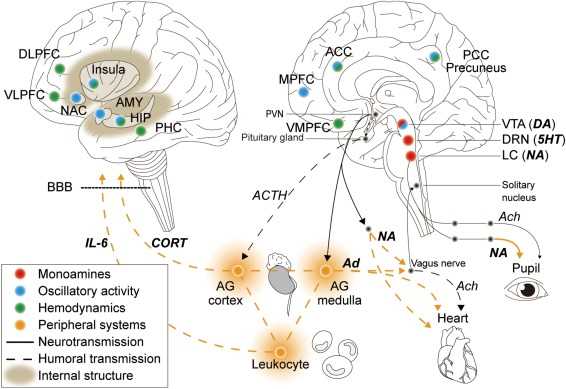
Resilience is a fascinating concept that has captured the attention of psychologists and researchers alike. It refers to the ability to bounce back and adapt in the face of adversity, and it plays a crucial role in our overall well-being. But what exactly is resilience, and how does it work in the brain?
The brain is a complex organ that governs our thoughts, emotions, and behaviors. It is through the brain that we experience stress, self-control, and a range of other psychological processes. One area of the brain that has been of particular interest to researchers studying resilience is the left medial prefrontal cortex (MPFC).
The MPFC is involved in a variety of functions, including emotion regulation, self-reflection, and decision-making. It is also known to play a role in stress and resilience. Recent studies have found that individuals with a more active left MPFC tend to exhibit higher levels of resilience in the face of stressors. This suggests that the left MPFC may be a key player in our ability to cope with and recover from stressful situations.
Understanding the role of the left MPFC in stress resilience is an important area of research in the field of neuroscience. By unraveling the mechanisms at play in the brain, scientists hope to develop interventions and strategies to enhance resilience and improve mental health outcomes. This knowledge can empower individuals to better regulate their emotions, build self-control, and ultimately lead more fulfilling lives.
The Importance of Stress Resilience
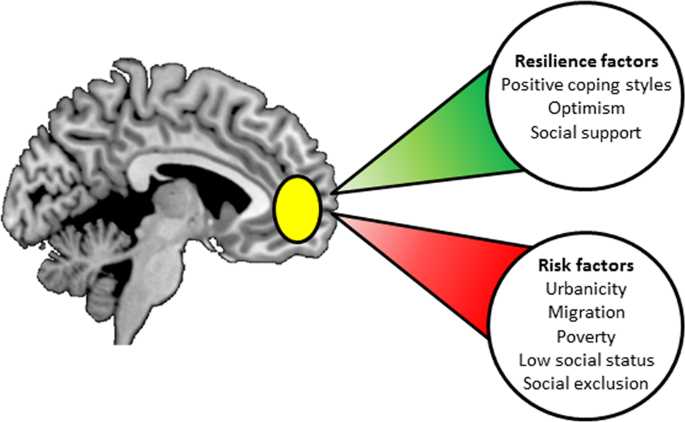
Stress resilience plays a crucial role in maintaining our mental and physical well-being. It refers to our ability to adapt and bounce back from stressful situations without experiencing long-term negative effects. Left mpfc (medial prefrontal cortex) is a key region in the brain that is involved in stress resilience.
Self-control is an important aspect of stress resilience. It allows us to regulate our emotions and behaviors in response to stressors, helping us to maintain a sense of calm and control. The left mpfc is involved in self-control processes, allowing us to effectively manage stress and prevent it from overwhelming us.
Resilience is not about avoiding stress altogether but rather about developing the skills and strategies to effectively cope with it. By building resilience, we can better manage the challenges and pressures that life throws at us. The left mpfc plays a crucial role in this process, helping us to regulate our emotions and make adaptive decisions in stressful situations.
Understanding the psychology of stress resilience is important for both individuals and society as a whole. By recognizing the role of the left mpfc in stress resilience, we can develop interventions and strategies to enhance our ability to cope with stress. This can lead to improved mental health and well-being for individuals, as well as more resilient communities and societies.
In conclusion, stress resilience is of utmost importance in our fast-paced and demanding world. The left mpfc plays a vital role in self-control, emotions, and stress regulation, making it a key area of study in psychology and neuroscience. By understanding and enhancing our stress resilience, we can improve our overall well-being and lead healthier, happier lives.
Neurobiological Basis of Stress Resilience
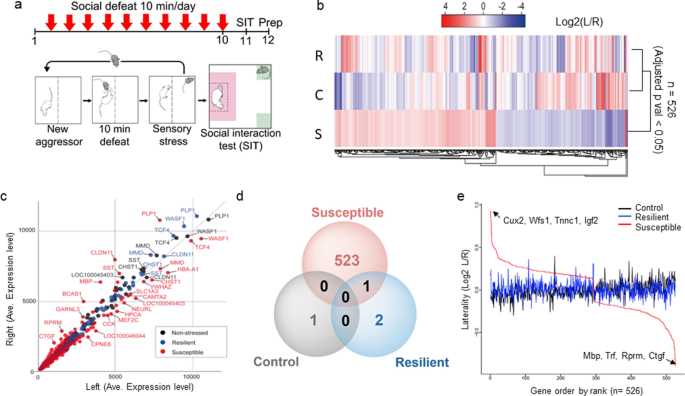
Stress is a common experience that affects individuals in various ways, often leading to negative consequences for both mental and physical health. However, not everyone responds to stress in the same way. Some individuals exhibit a remarkable ability to cope with stress and maintain a sense of well-being, while others may succumb to its detrimental effects. This ability to adapt and bounce back from stressful situations is known as stress resilience.
Understanding the neurobiological basis of stress resilience is crucial for developing effective interventions and treatments for stress-related disorders. One key region of interest in the brain that has been implicated in stress resilience is the left medial prefrontal cortex (mPFC).
The mPFC is involved in various cognitive and emotional processes, including self-control, decision-making, and regulation of emotions. It plays a critical role in modulating the stress response and promoting resilience in the face of adversity.
Research in psychology and neuroscience has shown that individuals with higher levels of stress resilience exhibit greater activation and connectivity within the left mPFC. This suggests that the left mPFC may play a crucial role in regulating emotional responses to stress and promoting adaptive coping strategies.
Furthermore, studies have also demonstrated that the left mPFC is involved in the regulation of the hypothalamic-pituitary-adrenal (HPA) axis, which is a major stress response system in the body. Dysregulation of the HPA axis has been implicated in various stress-related disorders, such as anxiety and depression. The left mPFC may help to dampen the HPA axis response to stress, thereby promoting resilience and protecting against the negative effects of chronic stress.
In summary, the left mPFC is a key neurobiological substrate underlying stress resilience. Understanding the mechanisms through which the left mPFC influences stress resilience may provide valuable insights into the development of targeted interventions for stress-related disorders. Further research in this area is needed to elucidate the specific neural circuits and molecular pathways involved in stress resilience, ultimately leading to improved treatments and strategies for promoting mental well-being.
Role of the Left MPFC in Stress Resilience
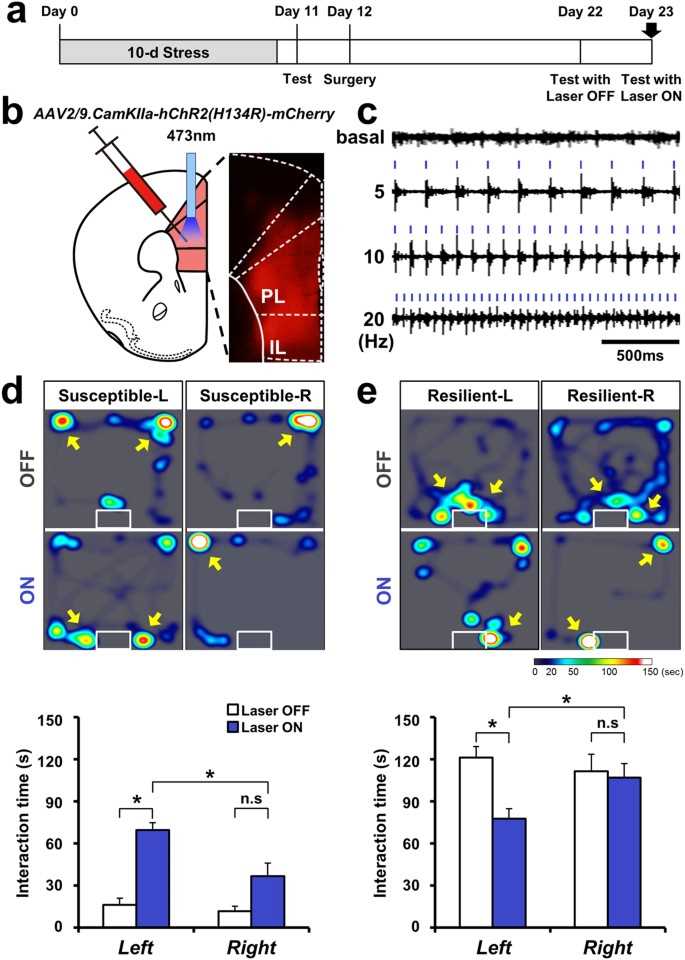
The left medial prefrontal cortex (MPFC) plays a crucial role in stress resilience. This region of the brain is responsible for regulating emotions and self-control, making it a key player in our ability to cope with stressful situations.
Neuroscience research has shown that the left MPFC is involved in the processing of emotional information and is responsible for modulating our emotional responses to stress. It helps regulate the release of stress hormones and plays a role in dampening the amygdala’s response to stressors.
Studies have found that individuals with greater activity in the left MPFC tend to exhibit higher levels of stress resilience. They are better able to regulate their emotions and maintain self-control in the face of stress, allowing them to bounce back more quickly from challenging situations.
Psychology research has also linked the left MPFC to the development of resilience. It is believed that individuals with a stronger left MPFC are more likely to engage in adaptive coping strategies and have a more positive outlook on life, which contributes to their ability to handle stress effectively.
Understanding the role of the left MPFC in stress resilience has important implications for the development of interventions to enhance resilience. By targeting this region of the brain, researchers may be able to develop strategies to help individuals build their stress resilience and improve their overall well-being.
In conclusion, the left MPFC is a critical brain region involved in stress resilience. Its role in regulating emotions and self-control makes it an important factor in our ability to cope with stress. Further research in this area may provide valuable insights into how we can better manage stress and improve our overall mental health.
Functions of the Left MPFC
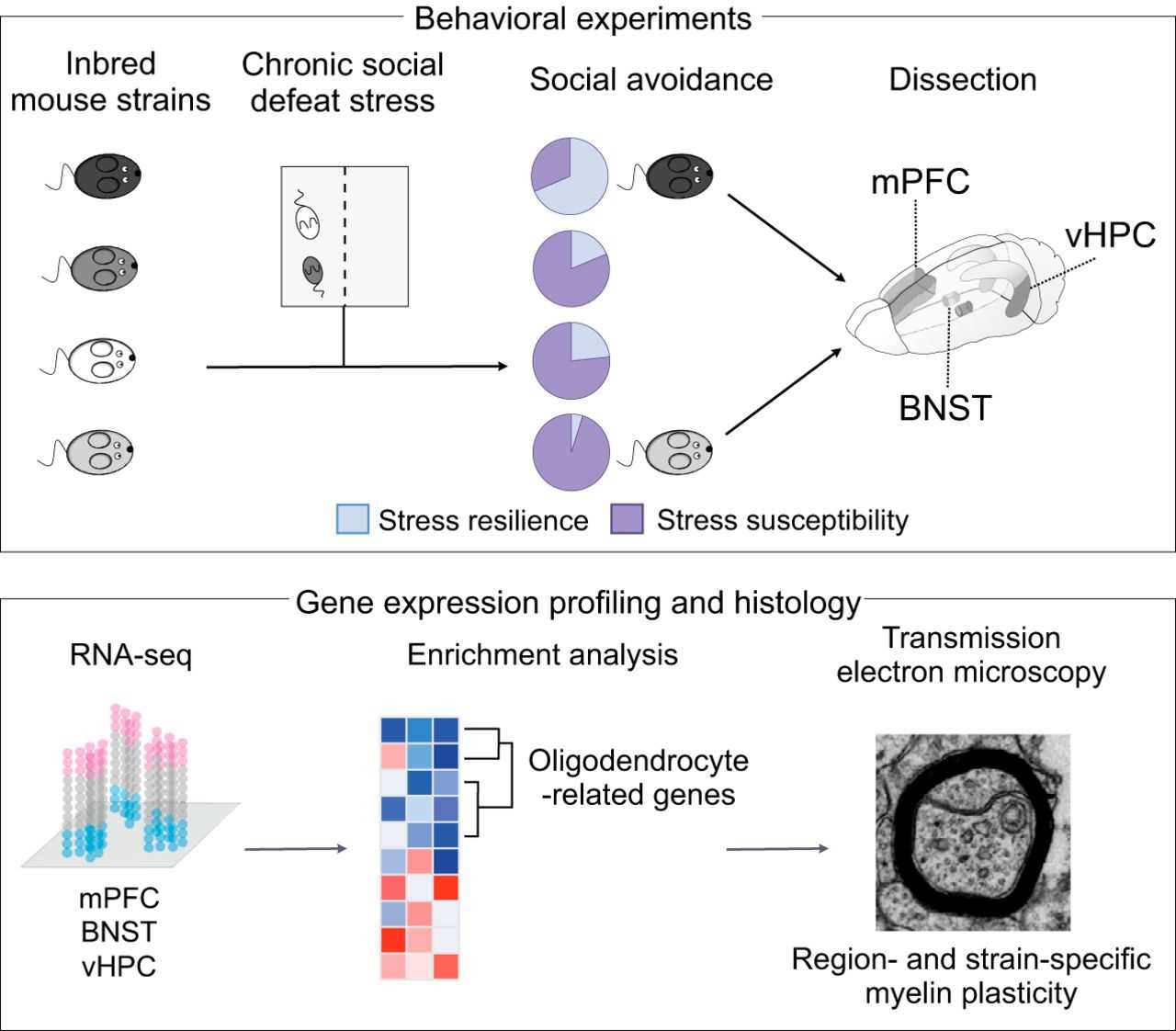
The left medial prefrontal cortex (MPFC) plays a crucial role in various cognitive and emotional processes. It is involved in self-control, decision-making, and regulating emotions. Understanding the functions of the left MPFC can provide valuable insights into the psychology and neuroscience of stress resilience.
One of the key functions of the left MPFC is self-control. It helps individuals regulate their behavior, resist temptations, and make choices that align with their long-term goals. The left MPFC is responsible for inhibiting impulsive responses and promoting self-discipline.
In addition to self-control, the left MPFC is involved in the processing of emotions. It helps individuals recognize and understand their own emotions and the emotions of others. The left MPFC plays a crucial role in empathy, social cognition, and emotional regulation, which are essential for maintaining healthy relationships and managing stress.
Furthermore, the left MPFC is connected to various regions of the brain, allowing for effective communication and integration of information. It receives inputs from sensory systems, such as vision and hearing, as well as higher-order brain regions involved in executive functions. This connectivity enables the left MPFC to integrate information from multiple sources and make complex decisions.
Overall, the left MPFC is a central hub in the brain for self-control, psychology, emotions, and stress resilience. Understanding its functions can provide valuable insights into the mechanisms underlying stress resilience and inform the development of interventions to enhance stress coping strategies.
Neural Circuitry of the Left MPFC
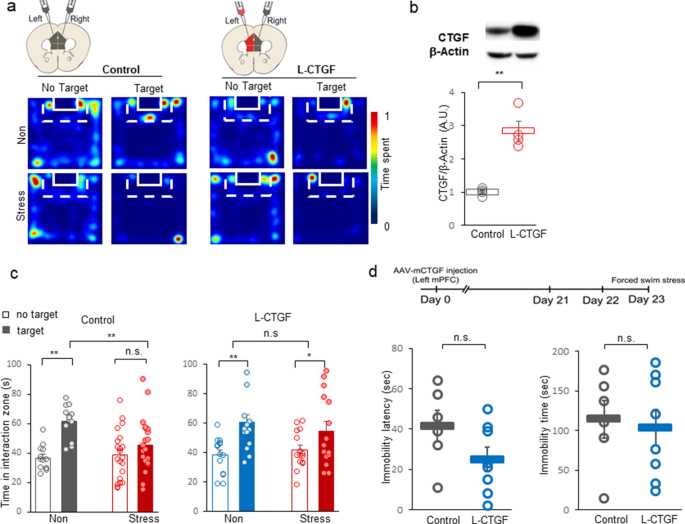
The left medial prefrontal cortex (MPFC) is a key region in the brain that plays a crucial role in stress resilience and self-control. It is involved in various psychological processes and is a subject of interest in the fields of psychology and neuroscience.
The MPFC is a part of the prefrontal cortex, which is located in the frontal lobe of the brain. It is responsible for regulating emotions, decision-making, and social behavior. The left MPFC specifically is associated with self-control and resilience to stress.
Research has shown that the left MPFC is connected to other regions of the brain through a network of neural circuits. These circuits involve connections with the amygdala, hippocampus, and anterior cingulate cortex, among others.
The amygdala is involved in processing emotions and is important for the regulation of stress responses. The left MPFC has connections with the amygdala that allow for the regulation of emotional responses to stressful stimuli.
The hippocampus, on the other hand, is involved in memory formation and consolidation. The left MPFC is connected to the hippocampus, and this connection is thought to play a role in the regulation of stress-related memories and the formation of adaptive responses to stress.
The anterior cingulate cortex is involved in cognitive control and attention. It is connected to the left MPFC and is thought to be involved in the regulation of self-control and the ability to focus attention on relevant information in stressful situations.
Overall, the neural circuitry of the left MPFC is complex and involves connections with various regions of the brain. This circuitry is crucial for stress resilience and self-control, and understanding its functioning is important for understanding the mechanisms underlying these psychological processes.
Effects of Stress on the Left MPFC
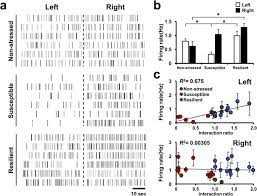
Stress is a common experience in our daily lives, and it can have profound effects on our psychology and resilience. The left medial prefrontal cortex (MPFC) is a region of the brain that plays a crucial role in self-control and emotional regulation. Recent research in neuroscience has shown that stress can have significant impacts on the functioning of the left MPFC.
When we experience stress, our brain releases hormones such as cortisol, which can impair the functioning of the left MPFC. This can lead to a decrease in self-control and an increase in impulsive behavior. Studies have shown that individuals who are exposed to chronic stress may have reduced activity in the left MPFC, which can make it more difficult for them to regulate their emotions and make rational decisions.
Furthermore, stress can also affect the connectivity between the left MPFC and other regions of the brain. The left MPFC is known to be involved in the regulation of the amygdala, a key brain structure involved in the processing of emotions. Chronic stress can disrupt the communication between these two regions, leading to an imbalance in emotional processing and an increased vulnerability to anxiety and depression.
Understanding the effects of stress on the left MPFC is crucial for developing strategies to enhance stress resilience. By identifying the specific mechanisms through which stress affects the left MPFC, researchers can develop targeted interventions to help individuals better cope with stress and improve their emotional well-being.
In conclusion, stress has significant effects on the left MPFC, a region of the brain involved in self-control and emotional regulation. Chronic stress can impair the functioning of the left MPFC and disrupt its connectivity with other brain regions, leading to difficulties in emotion regulation and decision-making. Further research is needed to fully understand these effects and develop effective interventions for stress resilience.
Impact of Chronic Stress

Chronic stress has a profound impact on the left side of the brain, particularly in the realm of psychology and neuroscience. It is well-known that stress can have detrimental effects on an individual’s mental and physical well-being, but recent research has shed light on its specific impact on the left MPFC (medial prefrontal cortex).
The left MPFC plays a crucial role in stress resilience, which refers to an individual’s ability to cope with and recover from stressful situations. This brain region is involved in various cognitive processes, such as self-control, decision-making, and emotional regulation. When exposed to chronic stress, the left MPFC can become dysregulated, leading to a decrease in stress resilience.
Neuroscience studies have shown that chronic stress can impair the functioning of the left MPFC, resulting in difficulties in self-control and emotional regulation. This can manifest as increased anxiety, depression, and difficulties in managing emotions. The left MPFC is also involved in the processing of social information, and chronic stress can disrupt social cognition and impair interpersonal relationships.
Furthermore, chronic stress can lead to structural changes in the left MPFC, such as a decrease in gray matter volume and alterations in neural connectivity. These changes can further exacerbate the negative effects of stress on the brain, perpetuating a cycle of stress and impaired resilience.
In conclusion, chronic stress has a significant impact on the left MPFC, affecting various aspects of psychology and neuroscience. Understanding the role of the left MPFC in stress resilience can provide valuable insights into developing interventions and strategies to mitigate the negative effects of chronic stress and promote well-being.
Role of the Left MPFC in Stress Regulation
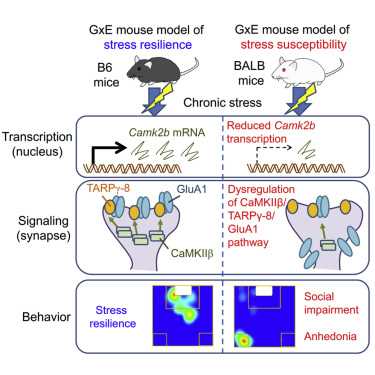
The left medial prefrontal cortex (MPFC) is a region of the brain that plays a crucial role in stress regulation. Stress is a common experience in everyday life and can have negative effects on both physical and mental health. Understanding the neural mechanisms involved in stress resilience is a topic of great interest in neuroscience and psychology.
The MPFC is involved in a wide range of cognitive and emotional processes, including self-control and the regulation of emotions. It has been found that individuals with higher levels of activity in the left MPFC are more resilient to stress and are better able to cope with challenging situations.
Research has shown that the left MPFC is involved in the regulation of the stress response. It has been found that individuals with higher levels of activity in this region have lower levels of cortisol, a hormone that is released in response to stress. This suggests that the left MPFC may play a role in modulating the physiological response to stress.
Furthermore, studies have shown that the left MPFC is involved in the cognitive appraisal of stressors. It is responsible for evaluating the significance and potential threat of a stressor, which in turn influences the emotional and behavioral response to stress. Individuals with higher levels of activity in the left MPFC are more likely to perceive stressors as less threatening and are better able to regulate their emotional response.
In conclusion, the left MPFC plays a crucial role in stress regulation and resilience. Understanding the neural mechanisms involved in stress resilience can help inform interventions and treatments for individuals who struggle with stress-related disorders. Further research in this area is needed to fully understand the complex interplay between the MPFC, stress, and resilience.
Enhancing Left MPFC Function for Stress Resilience
The left medial prefrontal cortex (MPFC) plays a crucial role in regulating emotions and promoting stress resilience. This region of the brain is involved in various cognitive and emotional processes, making it an important target for interventions aimed at enhancing stress resilience.
Psychology and neuroscience research have shown that chronic stress can lead to alterations in the structure and function of the MPFC. These alterations can impair its ability to regulate emotions and contribute to the development of stress-related disorders.
Understanding how to enhance left MPFC function for stress resilience is an area of active research. One approach is through interventions that promote neuroplasticity, the brain’s ability to change and adapt. Techniques such as mindfulness meditation, cognitive-behavioral therapy, and neurofeedback have shown promise in enhancing left MPFC function and improving stress resilience.
Mindfulness meditation involves training individuals to pay attention to the present moment without judgment. This practice has been found to increase activity in the left MPFC and improve emotional regulation, leading to greater stress resilience.
Cognitive-behavioral therapy focuses on identifying and changing negative thought patterns and behaviors. By targeting maladaptive cognitive processes that contribute to stress, this therapy can help enhance left MPFC function and promote stress resilience.
Neurofeedback is a technique that allows individuals to gain real-time feedback on their brain activity and learn to regulate it. By training individuals to increase left MPFC activity, neurofeedback can enhance its function and improve stress resilience.
Overall, enhancing left MPFC function is a promising approach for improving stress resilience. By targeting this region of the brain through interventions such as mindfulness meditation, cognitive-behavioral therapy, and neurofeedback, individuals can develop the skills and abilities needed to better cope with stress and maintain emotional well-being.

I am Patrina de Silva, a psychologist and mental health blogger in Sri Lanka. After obtaining psychology degrees from the University of Colombo and Monash University, I returned home to work as a counselor while also starting the popular blog “Pressy but Happy” to provide advice on psychological issues. Over the past decade, my empathetic articles have made my blog a leading mental health resource in the country. In addition to writing, I maintain a private therapy practice, frequently volunteer counseling time, and conduct seminars, driven by my passion for destigmatizing mental illness and educating the public on the mind-body connection. I strive to be an influential voice in my field through my compassionate approach.
